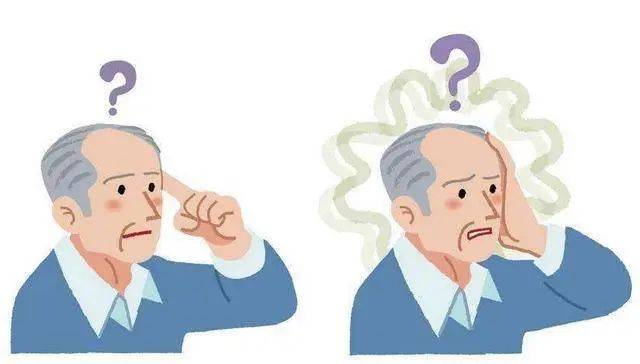Click the blue text
Follow us
01
What is mild cognitive impairment?
Mild cognitive impairment (MCI) refers to a decline in memory or other cognitive functions that does not affect daily living abilities and does not meet the diagnostic criteria for dementia. In other words, MCI is in the “gray area” between normal cognitive functioning and cognitive impairment. The diagnostic criteria for MCI were first proposed by Dr. Petersen and others in 1999, and were revised by an international working group in 2003.
There are four types of MCI: single cognitive domain amnestic MCI, multiple cognitive domain amnestic MCI, single cognitive domain non-amnestic MCI, and multiple cognitive domain non-amnestic MCI.
The causes of MCI are complex and varied: Alzheimer’s disease; cerebrovascular disease; Lewy body disease; and other slowly progressing types of dementia, where mild pathological changes can cause MCI before clinical symptoms reach the level of dementia. Additionally, brain injuries, encephalitis, and nutritional deficiencies can lead to persistent MCI.
02
What signs indicate MCI?
Declines in memory, language ability, attention, executive function, visuospatial abilities, or calculation skills can all be indicative.
Memory loss is the most prominent and common manifestation, primarily characterized by a decline in recent memory, evidenced by forgetting things, asking the same questions repeatedly, and difficulties in learning new information; neglecting personal appearance and hygiene or no longer pursuing previous hobbies; frequently getting lost; a decrease in planning and management skills, along with changes in cooking preferences.
03
How is MCI screened?
The MMSE and MOCA scales are the most commonly used screening tools for mild cognitive impairment.
04
How is MCI diagnosed?
The diagnosis mainly includes the following four points:
(1) Reports from the patient or informants, or observations from an experienced clinician indicating cognitive impairment.
(2) Evidence of damage in one or more cognitive function domains (from cognitive tests).
(3) There may be slight damage to complex instrumental daily activities but the ability to live independently is preserved.
(4) The diagnostic criteria for dementia have not yet been met.
05
Treatment for MCI
The “2018 Chinese Guidelines on Dementia and Cognitive Impairment” states that efforts should be made to actively identify causes and treat any treatable underlying conditions. Non-drug treatments should also include moderate physical exercise, lifestyle interventions, cognitive training, social engagement, and participating in stimulating activities.
◀
Friendly reminder
▶
The outpatient clinic for cognitive disorders (memory disorders) at Jin Qiu Hospital in Liaoning Province is located on the 2nd floor of Building 2 in the neurology department, open on Monday, Tuesday, and Wednesday mornings. We welcome patients and family members to come for consultations. Our expert team provides professional assessments and testing for you.
Submitted and proofread by: Neurology Ward 2, Su Xuejiao
Reviewed by: Neurology Ward 2, Sun Shuning
Edited and organized by: Shi Shuang, Sang Kexin, Gong Yifei, Li Caifei
Press and hold to follow and unlock more exciting content
If you find it “good looking”, click here↓


